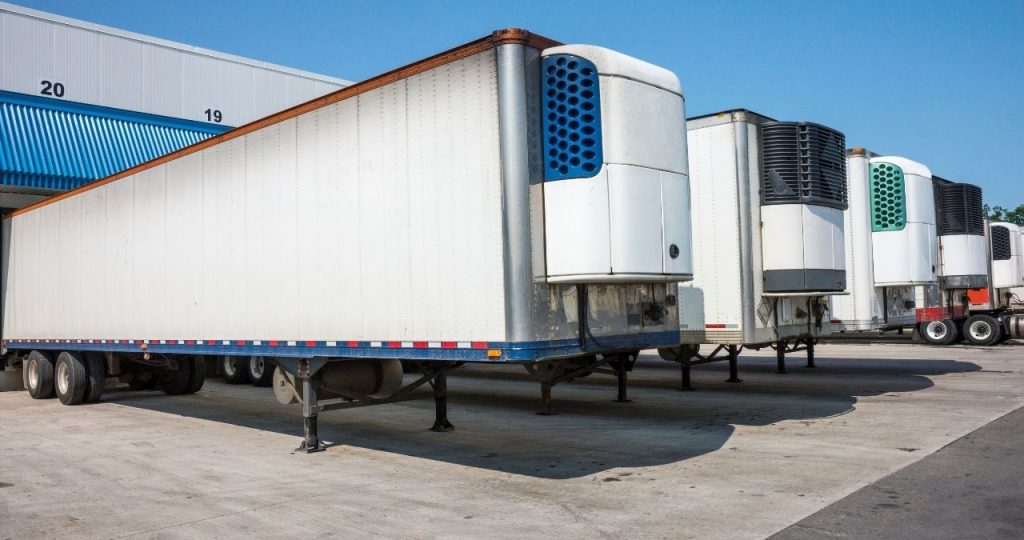Cold chain logistics companies have had several decades to perfect their craft. The industry uses a complex network to keep products at the right temperature and safe during storage and transport. Although most cold chain companies are old hands, there are always challenges to be faced and overcome. There is an endless number of unique ways the industry can face a failure during shipment, but here are some of the most common challenges faced by cold chains.
Common Cold Chain Challenges
Too Much Condensation
If you take a look at your freezer at home every once in a while, you may notice that there tends to be condensation that accumulates. This is often why freezers need to be de-iced once a season or more often if you have an older model. In a cold chain, condensation can also pose a problem but on a much larger scale. In locations that offer both warm storage and cold storage, condensation can become a regular headache. Products stored in the facilities can give off large concentrations of moisture when temperatures fluctuate.
The condensation can cause mold to flourish and even make surfaces slick and dangerous to traverse. Products that are negatively affected by constant exposure to condensation may also be risky for consumers which will not only affect the cold storage owner, but also the brands. The best method of managing condensation is to make sure there are enough HVLS fans in the facility. This will ensure that proper airflow is maintained to control airflow and humidity.
Problems With Freezer Doors
When dealing with cold storage the most important job is to maintain the right temperatures. This is especially true for temperature-sensitive products. Of course, that means that your entry and exit doors must always have a good seal. Damage to the freezer doors is one of the most common cold chain storage challenges companies face.
Doors can get damaged in any number of ways. From regular wear and tear to damage during shipment loading or unloading times. Some brands of cold chain freezers are made to withstand damage from loading machinery. These usually have a specific type of seal and impactable freezer doors. This allows them to bounce back on their tracks in the event of impact by a truck or forklift during a shift. For those that don’t use specialized doors, it is critical that any damage that occurs is immediately rectified. Failure to repair the doors can result in damaged products in addition to presenting a safety hazard for employees.
Freezer Microbial Growth
Nothing is worse than walking into a cold storage freezer and finding mold or any type of microbial growth. Mildew and mold are some of the most common problems faced in cold chain storage locations the world over. Most often they are the cause of broken freezer doors or mismanaged temperatures. They can also be caused by employees who fail to properly seal the freezer area when they come in or out. Proper temperature maintenance will prevent the build-up of particulates and minimize microbial harborage.
Another way to prevent mold and microbial growth is to taper the surfaces of the freezer to cut down on condensation. Components that don’t require lubrication will also cut down on areas that mold can be harbored. It is impossible to prevent spills completely. However, when they do happen it is best to clean them with the antibacterial, commercial-grade solvent as soon as they occur. In the event that microbial growth does occur, it is important to empty and clean the space as soon as possible to maintain the integrity and safety of the cold chain compartment.
Heat Exposure
It may seem strange for heat to be a problem in a cold storage situation. However, there can oftentimes be damage to the goods before they make it to the freezer. Outside temperatures, truck temperatures, or even high heat during unloading can damage items before they are placed in a temperature-controlled environment. Locations that offer a loading dock design with drive-through capabilities are more equipped to deal with such eventualities. Temperature irregularities can not only damage the products, but they can also pose a threat to consumers once they hit the regular market. Proper cold chain management can help reduce many of these common issues. In addition to management, regular training for all staff involved in shipping and storage is critical to maintaining product viability. Covid-19 Vaccine Cold Chain Storage and Handling
Cannonball Express Transportation
Cannonball Express Shipping Company has been providing top-of-the-line service at a reasonable rate. Based in Omaha, Nebraska, we provide nationwide refrigerated LTL services, as well as, local delivery services. Contact us today!
Nationwide Shipping Company Services:
- Refrigerated LTL deliveries in the lower 48 states
- Refrigerated Cross dock
Local Shipping Company Services:
- Redelivery Services
- Truckload & LTL Capabilities
- PUP
- Cross dock
- Transload
- Warehouse and Distribution capabilities from multiple Omaha Locations

